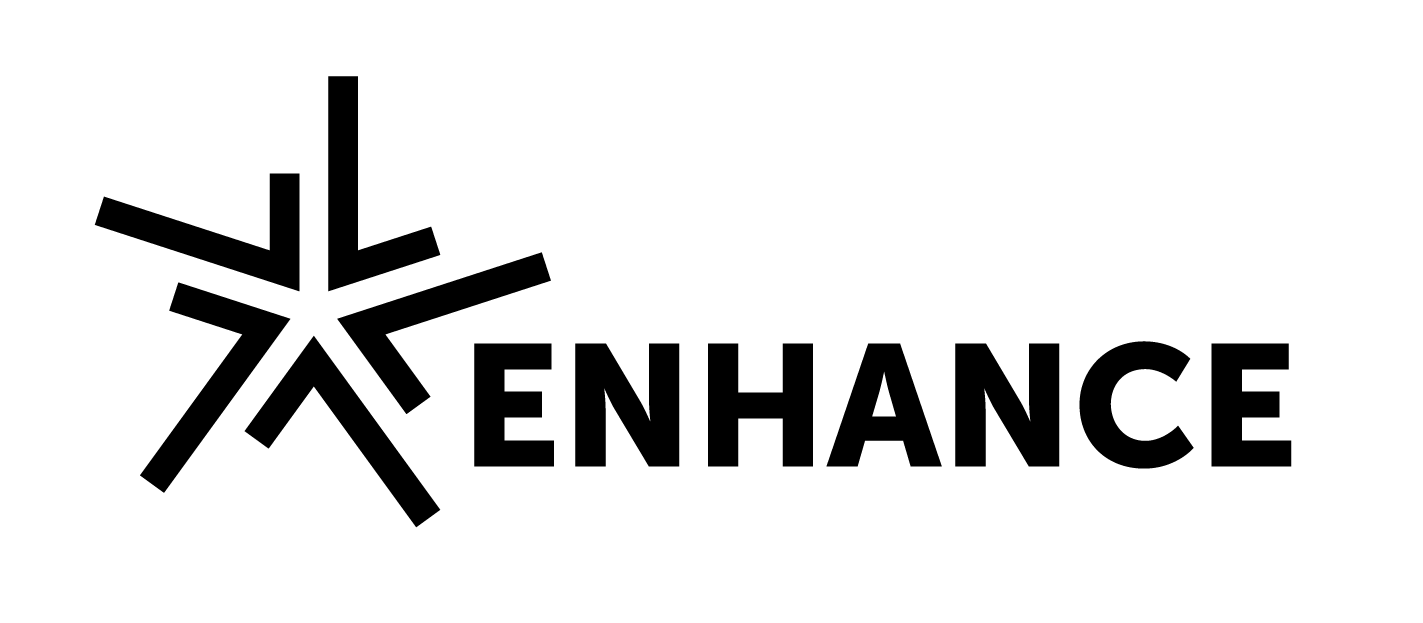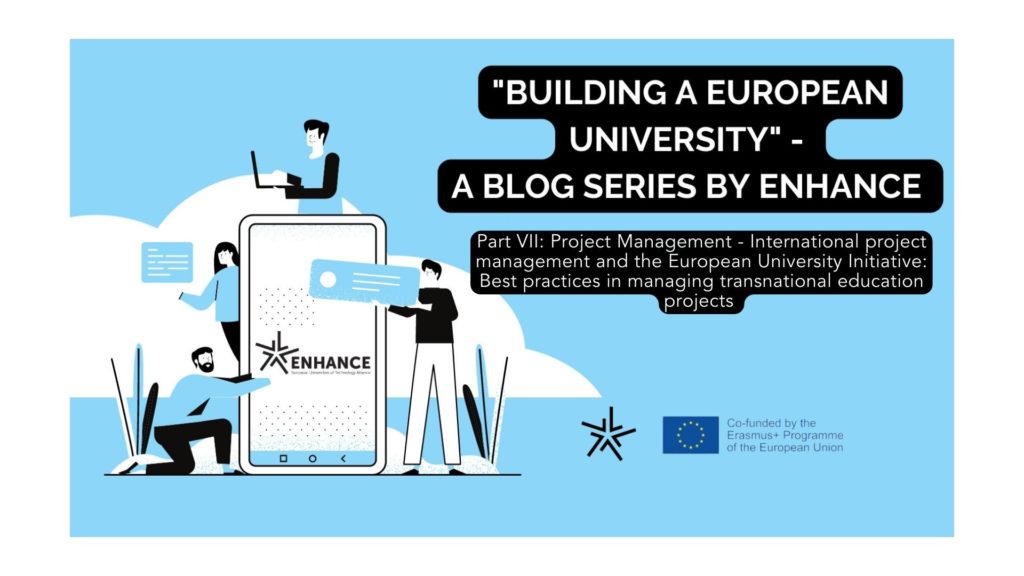International project management and the European University Initiative: Best practices in managing transnational education projects
By Sarah Fowkes, Senior Project Officer, ENHANCE Alliance
The ENHANCE Alliance consists of ten member universities and several associated partners in industry, civil society and local government. Our Alliance brings together ca. 300,000 students and 67,000 staff, and collectively we cover eight European countries and speak more than ten languages – but fortunately, all share the same time zone! Our members share a vision for driving excellent research in science and technology and pursuing quality and innovative education to prepare future graduates, and are united by the same core European values. Nonetheless, each member of the Alliance contributes its own particular expertise, shaped by local and national geopolitical contexts and institutional strategic priorities, amongst many other factors.
This diversity in the membership of ENHANCE plays an important role in our mission to empower people to drive responsible transformation for the benefit of society, supporting us in reaching a wide audience and applying this breadth of knowledge to common challenges. Capturing this diversity and applying it to the different projects and activities of the Alliance however calls for well organised project management. In this blog entry we share some of our experiences and best practice for managing complex transnational higher education projects, such as the European University.
BALANCING STABILITY AND AGILITY
Over the past three years we have established a democratic governance structure that exists independently of individual project life cycles, and provides the core structure for decision-making processes, project implementation and strategic development of the Alliance. The ENHANCE governance structure is based on three core principles:
Integration – Efficiency – Agility
Collectively, the four core governance bodies (Board of Directors, Steering Committee, Student Forum, and General Assembly) have oversight of major developments in the Alliance, monitor continued compliance with our overall mission and objectives, and offer crucial representation of the different members of the ENHANCE community. With this structure we ensure the necessary procedures and decision-making authorities are in place, whilst maintaining sufficient agility, for example, for new projects to be taken on. Project teams report regularly to the governance bodies but are organised independently. This structure is supported by the ENHANCE Operational Office, a centralised secretariat which acts as a coordination point for different projects, and supports the different governance bodies, in close cooperation with the Core Officers – the central Alliance coordinator at each member institution. The Operational Office provides administrative support and is responsible for communication with funding bodies, and coordinates other Alliance wide events and activities. This helps reduce the administrative work that needs to be handled by individual member institutions, and helps build a consistent ENHANCE brand across our work.
PARTICIPATORY GOVERNANCE AND PROJECT MANAGEMENT
We strive to ensure a high-level of co-creation through participatory governance structures and inclusive processes. The ENHANCE General Assembly offers a platform for all core groups in the ENHANCE community (students, PhDs, Professors, and administrative staff) to contribute to the development of the Alliance and share their perspective on new activities and educational offers. In addition, our Associated Partners participate, ensuring the voice of societal, industry and local government representatives are part of our discussions. The Chair of the General Assembly is a member of the most senior executive body, the ENHANCE Board of Directors, as are the two Co-Chairs of the ENHANCE Student Forum.
Clear reporting lines between different stakeholders are important to ensure there are recognised avenues for new ideas and recommendations to be heard. Student representation is an important part of the ENHANCE mission – the ambitions of the European University Initiative can only be achieved if we meet the needs of the diverse student body across our universities. That is why we aim to always take an inclusive approach to the development of new activities and offers from the very beginning. By involving students in pilot studies, or working with our Associated Partners when developing new tools, we increase the level of co-creation and ensure the diverse experience and needs of our membership feed into all aspects of our work. These principles and the associated processes, for example the roles and responsibilities of different governance bodies, are captured in a shared document (ENHANCE Charter of Rules and Procedures) which is signed by all members and ensures continued transparency.
COMMUNICATION AND TRUST
Complex transnational education projects of this kind involve, by their very nature, a high degree of virtual collaboration. This makes trusted relationships and open communication even more important. In ENHANCE, we benefit from the strong foundation of trusted relationships between our member institutions. We are a close community of partners, guided by a strong shared vision and mutual trust that has been built up through long-standing bilateral mobility and research partnerships, and other international strategic collaboration. The balance between trusted cooperation and clear decision-making measures and project management structures ensures a positive spirit of co-creation, that can effectively deliver high-quality results.
Though ENHANCE we are able not only to collaborate on an important shared mission, but in learning from each other, we also inspire changes in our own institutions and work environments. We are able to benefit from the varied experience of our staff and students, including when it comes to different project management tools and strategies. Given the size of our network, digital and hybrid cooperation is necessarily a part of this and we make effective use of select tools to ensure we are able to communicate well and continue to build trusted relationships. Regular in-person meetings and workshops are also an important part of this and we come together in different settings throughout the year, for example for a project workshop, governance body meeting, or public event. This gives members of the Alliance the opportunity to see where their colleagues work, and build a better understanding of their own needs and challenges.
Central to the goal of the European Universities Initiative is the development of shared management and government structures, joint strategies and the pooling of resources. Alongside the daily project management required to effectively implement the different projects run by European University Alliances, with the approach highlighted above we are therefore also always working towards this more long-term, deeper level of transnational cooperation. And we invite you to get involved in ENHANCE and join us on this journey!



